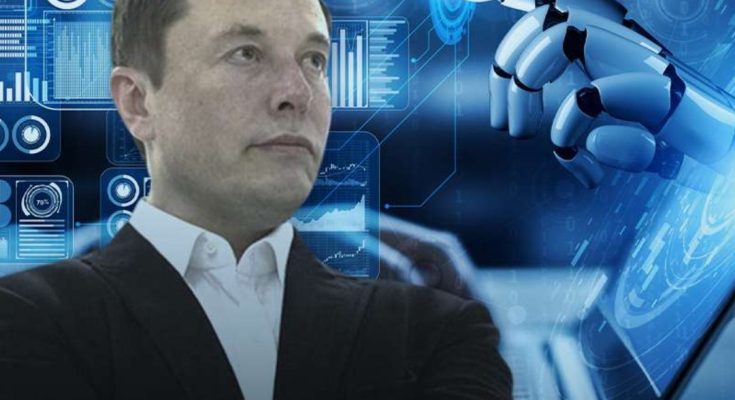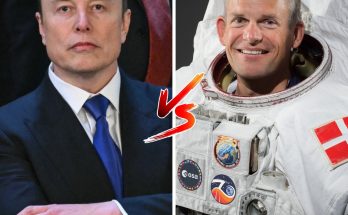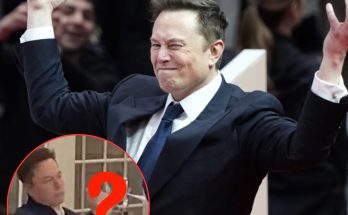Elon Musk, the tech mogul known for his ventures in electric vehicles, space exploration, and artificial intelligence, is now setting his sights on one of the most lucrative markets of the future: robotics.With a projected market value of $10 trillion, robotics has the potential to reshape industries from manufacturing to healthcare, and Musk is positioning himself to be at the forefront of this technological revolution. However, as with all of Musk’s ventures, the path to dominance is not without significant challenges. Chief among these is the fierce competition coming from China, where tech companies are rapidly advancing in robotics development.Robotics, once the domain of science fiction, is quickly becoming a reality. With advancements in artificial intelligence (AI), machine learning, and automation, robots are poised to transform how we live and work.The global robotics market is expected to reach an astounding $10 trillion by 2040, driven by increasing demand for automation in industries such as manufacturing, logistics, healthcare, and even domestic services.Elon Musk, never one to shy away from ambitious goals, has already made moves to establish his presence in the robotics market. His companies, including Tesla and SpaceX, are developing technologies that incorporate robotics in ways that could revolutionize industries.Tesla’s humanoid robot, Optimus, is one such example. Unveiled as a prototype at Tesla’s AI Day in 2022, Optimus is designed to handle a wide range of tasks, from performing manual labor to assisting in household chores. Musk’s vision for Optimus is that it will become an integral part of daily life, taking over repetitive tasks and improving efficiency across various sectors.Optimus, however, is not Musk’s first foray into robotics. SpaceX has also made use of robots and automated systems for its missions, including robotic arms that assist in spacecraft assembly and satellite deployment.Musk’s deep interest in robotics is driven by his belief that automation is the key to solving many of the world’s problems, particularly in terms of labor shortages, productivity, and safety.The global robotics market, projected to be worth $10 trillion, presents immense opportunities for growth and innovation. Robots are already being used in industries ranging from automotive manufacturing to healthcare, where they assist in surgeries and help with elder care.In the future, robots could play a central role in nearly every aspect of human life, from managing supply chains to providing personalized assistance in homes and workplaces.Musk sees the potential for robotics to not only change industries but also to address societal challenges such as an aging population and labor shortages.In particular, he is focusing on creating robots that can perform repetitive tasks, allowing humans to focus on more creative and intellectually demanding work. By pushing the boundaries of what robots can do, Musk hopes to drive a wave of innovation that will transform economies and improve lives.The healthcare sector, in particular, is a major area where robotics is poised to have a profound impact. Robotic surgeries, rehabilitation devices, and care assistants for the elderly are just a few examples of how robotics could revolutionize the medical field.As the population ages globally, the demand for robotic solutions in healthcare is expected to rise dramatically, creating vast opportunities for companies that can capitalize on this growing need.While Elon Musk is making significant strides in robotics, he faces fierce competition from China, where tech companies are developing robots at a rapid pace. China, with its burgeoning tech sector and government support for innovation, is quickly becoming a dominant player in the global robotics market.Companies such as Huawei, Baidu, and DJI are at the forefront of this revolution, investing heavily in robotics and AI technologies to create robots that can perform a wide range of tasks.In China, the government has recognized the strategic importance of robotics and has made significant investments to support the development of this technology. With a large domestic market and a focus on advancing AI and automation, China has the resources and ambition to outpace other countries, including the United States, in robotics development.This poses a significant challenge for Musk, who is not only competing against established Chinese companies but also navigating a complex geopolitical landscape.One of the key areas where China is excelling in robotics is the development of industrial robots for manufacturing. China’s manufacturing sector, the largest in the world, is increasingly turning to robots to improve efficiency and reduce costs.This shift is being driven by the need for more precise and automated production lines, which robots are perfectly suited to handle. Chinese companies are also making strides in humanoid robots, drones, and autonomous vehicles, all of which could be direct competitors to Musk’s vision for Optimus and other AI-driven technologies.Elon Musk is no stranger to competition, and his response to the growing robotics market in China is likely to be bold and aggressive. Tesla and SpaceX’s efforts to develop robots that can perform a wide range of tasks are only the beginning of Musk’s larger vision for the future of automation.Tesla’s Optimus robot, in particular, is designed to take on jobs that are currently performed by humans, such as factory labor, retail work, and even personal assistance.By focusing on creating a robot that can perform a wide array of tasks, Musk hopes to set Tesla apart from its competitors and establish the company as a leader in the robotics industry.Musk’s approach to robotics is also rooted in his belief that automation can solve some of the world’s biggest challenges. Whether it’s addressing labor shortages, improving safety in high-risk industries, or enhancing productivity in the workplace, Musk sees robots as key tools for driving societal progress.In this regard, Musk is positioning himself as a leader in the fight to shape the future of robotics, despite the intense competition from China and other global players.As Musk continues to push the boundaries of robotics, there are significant ethical and societal implications to consider. The widespread adoption of robots could lead to massive job displacement, particularly in industries that rely heavily on manual labor.While robots have the potential to improve efficiency and reduce costs, they could also exacerbate income inequality and create new societal divides between those who benefit from automation and those who are displaced by it.Additionally, the rise of robots raises questions about privacy, security, and control. As robots become more integrated into daily life, the potential for misuse or malfunction increases.Musk has already expressed concerns about the role of AI in society, warning that uncontrolled advancements could lead to unintended consequences. As robotics technology continues to evolve, it will be crucial to address these ethical concerns and ensure that robots are used responsibly and safely.Looking ahead, the future of robotics is both exciting and uncertain. The global robotics market is expected to grow exponentially in the coming decades, with robots becoming an integral part of nearly every industry.Elon Musk’s vision for robotics is one that combines technological innovation with the goal of improving humanity’s future. Whether it’s through creating humanoid robots like Optimus or advancing autonomous technologies, Musk believes that robots can play a pivotal role in solving some of the world’s most pressing issues.However, with fierce competition from China and other tech giants, Musk’s path to dominating the $10 trillion robotics market will not be easy. The rapid pace of innovation in China, combined with the country’s government support for robotics development, presents a formidable challenge for Musk’s companies.Nevertheless, Musk’s ability to innovate and his relentless drive for progress may still give him the edge needed to secure Tesla’s place at the forefront of the robotics revolution.Elon Musk is betting big on the future of robotics, with the potential to disrupt industries and transform how we live and work. However, the race to dominate the $10 trillion robotics market is becoming increasingly competitive, with China emerging as a major player in the field.As Musk continues to push the boundaries of robotics, he faces the dual challenge of outpacing global competitors while addressing the ethical and societal implications of this powerful technology.The coming years will determine whether Musk can lead the way in robotics or if his rivals will overtake him in the race for automation supremacy.
Sh0ck King: Elon Musk sets sights on the $10 trillion robot market as global competition heats up!



